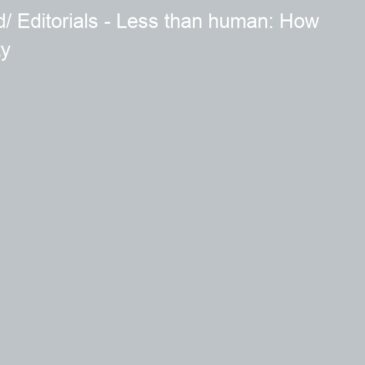The theme of the 2006 Institute for Research on Pathological Gambling and Related Disorders annual conference on gambling addiction was Lost in Translation? The Challenge of Turning Good Research into Best Practice. During the next few weeks, The BASIS is pleased to present a series of editorials from some of the faculty members of that conference. In this week’s editorial, Dr. Debi LaPlante discusses how society views people with addiction.
Dr. Debi LaPlante
Instructor of Psychology, Division on Addictions
Faculty, The 2006 Institute for Research on Pathological Gambling and Related Disorders annual conference on gambling and addiction
Discrimination—treating someone in a particular way because of their group membership, rather than individual characteristics or worth—is a leader among the many insults directed to people who suffer from addiction. Such discrimination takes many forms. For example, patients with addiction often take the blame for a lack of progress or relapse and consequently can be at-risk for exclusion from treatment. High rates of relapse evident among people with addiction also encourage society to suggest that people can never fully recover from addiction. The presumption that addiction is a lifelong disorder gives the appearance of understanding and honesty in the face of addiction, but really just minimizes individuals’ unique abilities, power, and autonomy. Not only are such minimizations discriminatory, but they are based on faulty logic. High rates of relapse don’t necessarily speak to the nature of a disorder and might just lay bare the inadequacy of available treatment. Regardless of whether addiction is chronic and relapsing, or just appears that way because our treatments of addiction are so primitive, society continues to harbor prejudice against the addicted. One response to this has been the attempt to re-educate the public as a whole about the nature and course of addiction. Another has been to control professional practices and dialogue (e.g., the elimination of pejorative language, such as addict, alcoholic, and user). But, new research indicates that these attempts might be insufficient to eliminate widespread discrimination. Recent research suggests that discrimination against people who suffer from addiction runs deep (Harris & Fiske, 2006). Social neuroscience shows that one particular area of the brain, the medial prefrontal cortex (mPFC) is active when people engage in social cognition; that is, thinking that involves people. The mPFC is not active when people are stimulated to think about objects. The location, structure, and other functions of this area of the brain aren’t really important to this discussion, but what is important to understand is that this area of the brain is active when we think about other people. Here is where things get somewhat alarming. This social neuroscience research showed that the mPFC is active when people are thinking about different types of people, including people we might not like. However, the mPFC is not active when people are stimulated to think about extreme outgroups, such as people with addiction. Instead, areas of the brain associated with disgust and fear are active. This means that rather than thinking of individuals described as addicts as people, the brain thinks of them as objects of fear and disgust. This suggests that people dehumanize individuals in extreme outgroups – people don’t think about individuals who are members of extreme outgroups as they do other people. People often fool themselves into believing that addiction no longer produces such basic reactions. However, such social-neurological research pulls back the curtain and shows that we still have a great deal to do to make better the lives of people who suffer from addiction. If people merely decided to interact with people with addiction in an inhumane manner, that would be easier to change. But, this research shows that to some extent, such inhumane reactions might not be a decision at all. Reactions to extreme outgroups might be as basic as a startle response to someone sneaking up on you—a basic fight or flight response. This means that in addition to striving toward improved treatment opportunities, we need to try to change the way people in society organize their social world—at a very basic level. The ideas that society holds about addiction can have complex consequences for the support that is available, the punishments exerted, and the likelihood of recovery from addiction. If society continues to view people with addiction as less than human, recovery will continue to be just out of reach.
What do you think? Click here and let us know! Comments on this article can be addressed to Debi LaPlante.
References
Harris, L. T., & Fiske, S. T. (2006). Dehumanizing the lowest of the low: Neuroimaging responses to extreme out-groups. Psychological Science, 17(10), 847-853.
The views expressed in the Op-Ed/Editorials page are solely the views of the author(s) and do not necessarily reflect the views of the BASIS, its sponsors, or affiliated organizations.




